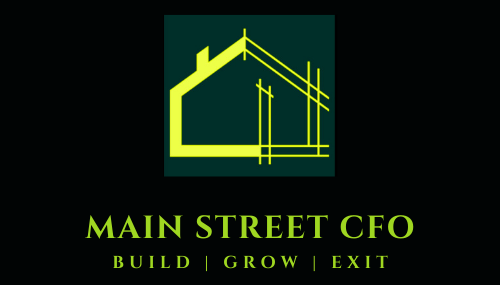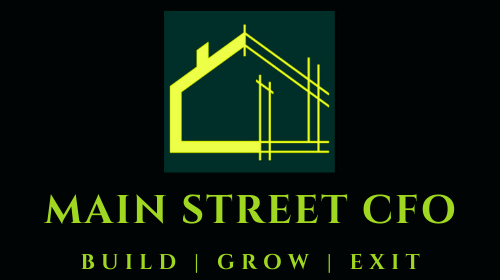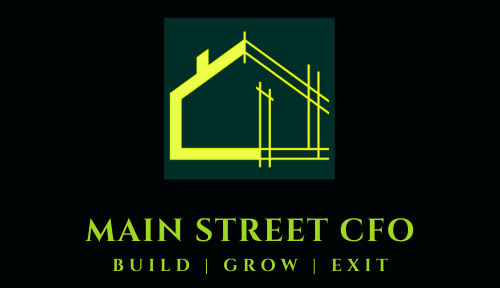Tax Strategies for Landlords
Tax Ideas for Landlords
Top Tax Strategies for Landlords
Investing in real estate is one of the key ingredients of building wealth but it also comes with its own set of tax challenges and opportunities. The tax code provides various tax strategies that landlords can use to significantly reduce their tax liabilities and, thus, maximize their returns. Here are the top 10 tax strategies for landlords:
1. Depreciation of Rental Property
Depreciation is the concept of expensing a portion of an investment property over it’s “useful life”. For residential properties that life is 27.5 years, for commercial properties, its 39 years. This allows landlords to deduct the cost of the property against the revenue it helps generate over time. Additionally, this deduction is available regardless of how you purchased the property, cash, loan or whatever.
Example: If a rental property is purchased for $550,000 (excluding land value), the annual depreciation deduction would be $20,000 ($275,000 / 27.5 years).
2. Deducting Mortgage Interest
The interest paid on loans used to acquire or improve rental property is fully deductible. This can help reduce taxable income. This is especially true in the early years of the mortgage because the interest payments are significantly higher in the early years. (Check out an amortization schedule, it’ll blow your mind.)
3. Repairs vs. Improvements
Many people believe repairs and improvements are the same. They aren’t. Repairs are amounts paid for things that keep the property in good condition or good working order. They are fully deductible in the year they are paid. Improvements, on the other hand, are expensed over time through depreciation. They add value to the property and must be depreciated over time.
Example: Fixing a leaking faucet is a repair and can be deducted when incurred. Replacing the entire kitchen is an improvement and must be depreciated.
4. Travel Expenses
Many business owners forget or aren’t aware that they can write off travel. As a landlord, you can deduct travel expenses related to managing your rental properties. Travel expenses include trips to perform maintenance on the property, to collect rent, or to meet with or interview tenants. It is very important to keep solid and accurate records.
Example: If you drove 250 miles to fix the toilet in a rental, you can deduct the mileage at the IRS standard rate, which in 2024 is 67 cents per mile, and would result in a deduction of $167.50.
5. Home Office Deduction
If you use part of your home exclusively to manage your rental business, you may qualify for a home office deduction. The square footage used as an office divided by the total square footage of the home is calculated. This percentage is used to compute the total home expenses that can be deducted. Home expenses can include a portion of mortgage interest, utilities, insurance, and repairs. There is also a simplified method that we won’t discuss here. Please check with your tax advisor.
Example: If the office space is 250 square feet and the total home is 2500 square feet then the home office occupies 10% of their home. You can deduct 10% of the home-related expenses.
6. Pass-Through Tax Deduction
Under the Tax Cuts and Jobs Act, landlords may qualify for a pass-through tax deduction of up to 20% of their qualified business income. This deduction is available to landlords who operate their rental activities as a business. This calculation is very complicated and has various thresholds and other limiting criteria that must be discussed with your tax advisor to ensure you’re maximizing it properly.
7. Cost Segregation
Cost segregation is a strategy that allows landlords to carve out components of their rental and recategorizing them into shorter life buckets. This allows depreciation to be accelerated by condensing it from 27.5 years into 5, 7 and 15 year lives. By reclassifying personal property assets to shorter depreciation buckets, landlords can increase their depreciation deductions in the early years of ownership.
8. 1031 Exchanges
Generally speaking, when a rental property is sold and there’s a gain on the sale, capital gain taxes are due. A 1031 exchange allows you to defer capital gains taxes when a rental property is sold and reinvest the proceeds into a similar property or properties. This strategy can be used repeatedly to defer taxes indefinitely, allowing you to kick the can down the road. As is the case with most tax strategies, details matter and it’s imperative you speak with a tax professional to ensure you’re following the necessary steps and time frames.
Example: If you sell a property for a $100,000 gain and reinvest the proceeds into a new property, you can defer paying capital gains tax on the $100,000.
9. Hiring Family Members
You can hire family members to help manage their rental properties and pay them a reasonable salary. This can shift income to family members in lower tax brackets and create additional deductions for the business.
If you want to have some fun, book a call with us to discuss hiring your kids, it’ll blow your mind. Set up properly, that money you were going to spend on dance lessons can be a write off…Again, talk with your tax advisor to accomplish the proper way.
Conclusion:
Real Estate can be an amazing wealth building vehicle, as well as, a solid way to legally mitigate your tax burden. It's critically important to keep detailed records and to discuss these things with a tax professional to ensure you’re compliant with IRS regulations. Proper planning and execution can lead to significant tax savings and a more successful rental property business. If you’d like to set up a call to see how you can take advantage of the tax code in your business, we’d love to help.













